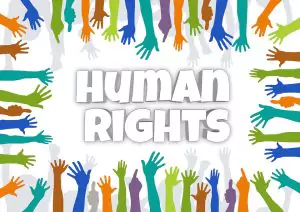 Human rights are usually said to be inalienable and innate. However, universal human rights are more of a modern invention. In the ancient past, these principles were more geared towards certain sections of society. Anyways, in the following paragraphs, there will be an exploration of the first records of human rights and what they entailed.
Human rights are usually said to be inalienable and innate. However, universal human rights are more of a modern invention. In the ancient past, these principles were more geared towards certain sections of society. Anyways, in the following paragraphs, there will be an exploration of the first records of human rights and what they entailed.

✅ AI Essay Writer ✅ AI Detector ✅ Plagchecker ✅ Paraphraser
✅ Summarizer ✅ Citation Generator
There are differing opinions of the first legal code and example of human rights. However, one can say that the oldest legal code known to humanity is The reforms of Urukagina of Lagash, created around 2350 BC in the area of Iraq. Though the record of it does not exist now, it is known that the reforms included punishments, especially for women. In addition, the document had laws against corruption. The volume is also referenced to, but has not been found (Yoffee, Norman). From the very beginning, human rights were not equal for each gender.
The oldest record of human rights that is in its original form is the Neo-Sumerian Code of Ur-Nammu, written around 2050 BC. It tells of punishments for offenses, which is either money needed to be paid, or something as severe as death. The document also described different statuses in society by law, and what each position entailed. Most of the laws are directed towards men, but women were allowed to remarry. However, if a woman committed adultery, she would be sentenced to death (Kramer, Samuel Noah).
The next pivotal find of ancient human rights can be said to be the Code of Hammurabi written around 1780 BC. Composed by the sixth Babylonian King, Hammurabi, it has 282 laws in total. It is reflective of previous legal codes in the area, and can be said to be a collection of rules gathered over time. In fact, it is quite modern in light of it including such provisions as the presumption of innocence, a minimum wage, the regulating of governments, and the striving of equal rights among all stratas of society. However, punishments varied widely depending on the interaction between classes. For example, if a rich man attacked a slave, the punishment would be less if a slave had attacked a rich man. Yet, the Code of Hammurabi was the perhaps the most nuanced code of its time (“8 Things You May Not Know About Hammurabi’s Code”).
The first declaration of human rights is believed by some scholars to be found in the Cyrus Cylinder composed of baked clay. Made in 6th century BC, it extols Persian King Cyrus as chosen by the god Marduk, and a restorer of peace. However, in some translations of the Cylinder, a declaration of human rights and independence is described (Robertson, A. H., and J. G. Merrills).
Ancient Greece envisioned the first rights of citizenship called the polis. With citizenhood, all people under its rule of law could speak and vote in a political assembly in a city-state. Each city-state was called a polis, and gave its citizens certain rights. Citizens generally had to be born within a certain polis and be free. Being assured rights under the rule of polis was a novel concept, as before only authoritarian rule determined if you were afforded human rights. The ancient Greeks believed themselves to be too progressive to promote this kind of rule, and vied for a holistic giving of citizenship (Study.com).
Though universal human rights for both genders is more of a contemporary idea, varying degrees of human rights have been given since ancient times. Starting from The reforms of Urukagina of Lagash in Iraq in 2350 BC, documents were created to describe the punishment for crimes, the rules of business contracts, and the principles of family life. It was not until ancient Greece, though, that people born and free in a certain area were automatically claimed to be citizens and that their rights would be protected by a non-authoritarian government.
Works Cited
Yoffee, Norman. Myths of the Archaic State: Evolution of the Earliest Cities, States, and Civilizations. Cambridge University Press, 2009.
Kramer, Samuel Noah. History Begins at Sumer. University of Pennsylvania Press, 1988.
“8 Things You May Not Know About Hammurabi’s Code.” History.com, A&E Television Networks, www.history.com/news/8-things-you-may-not-know-about-hammurabis-code.
Robertson, A. H., and J. G. Merrills. Human Rights in the World: an Introduction to the Study of the International Protection of Human Rights. Manchester Univ. Press, 2003.
Study.com, Study.com, study.com/academy/lesson/significance-of-citizenship-in-ancient-greece.html.
Follow us on Reddit for more insights and updates.





Comments (0)
Welcome to A*Help comments!
We’re all about debate and discussion at A*Help.
We value the diverse opinions of users, so you may find points of view that you don’t agree with. And that’s cool. However, there are certain things we’re not OK with: attempts to manipulate our data in any way, for example, or the posting of discriminative, offensive, hateful, or disparaging material.